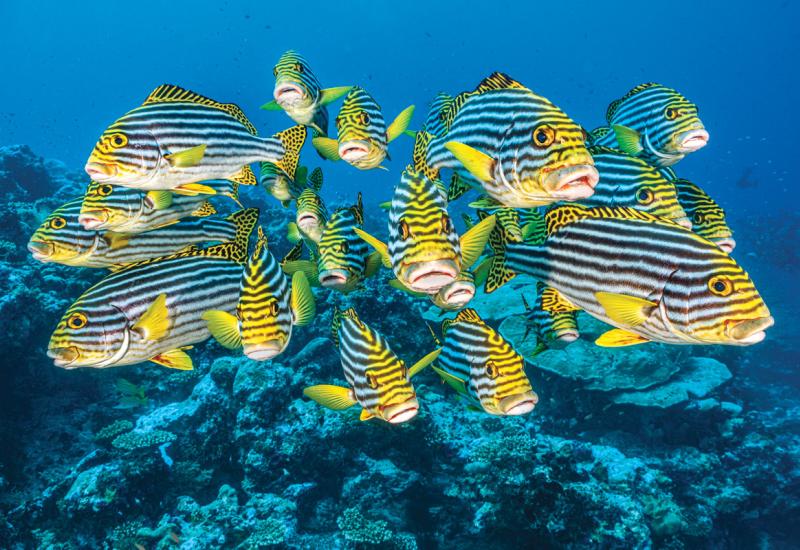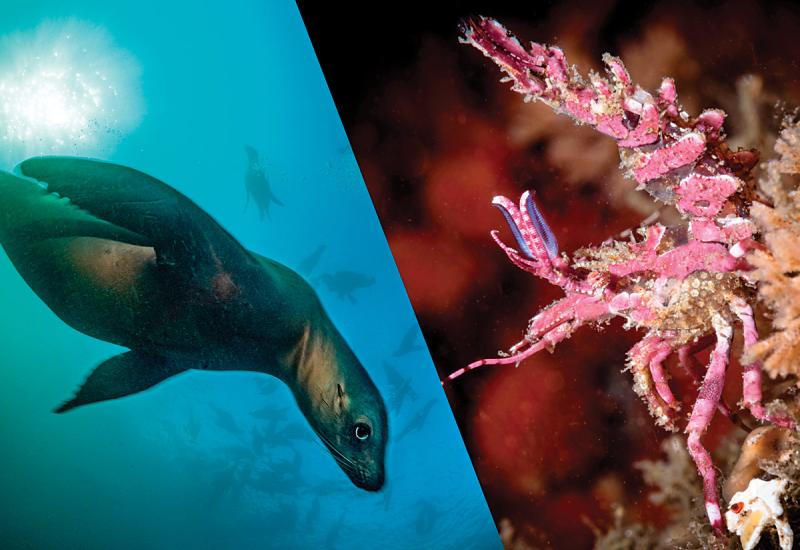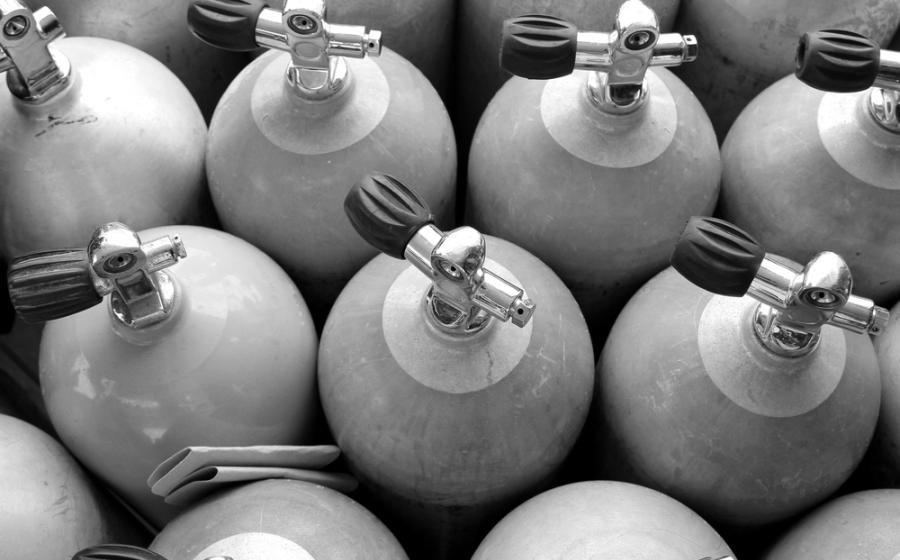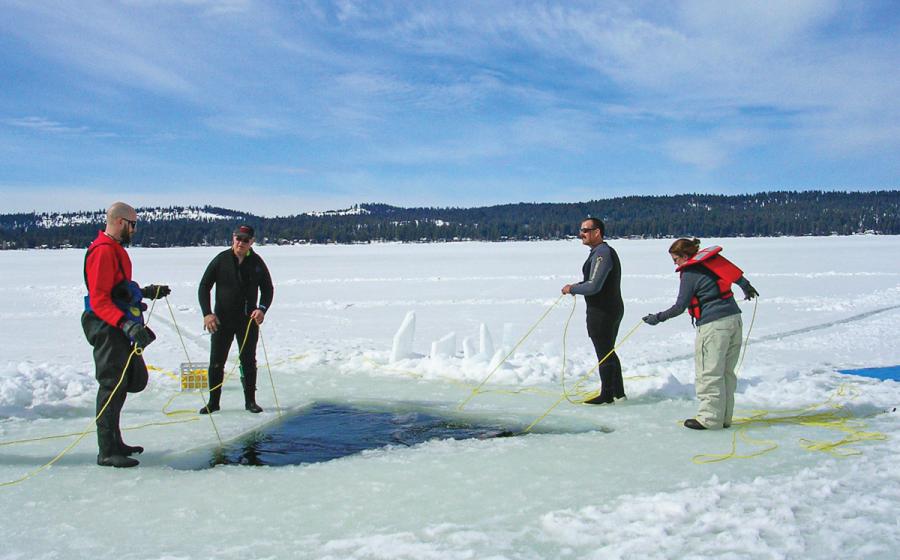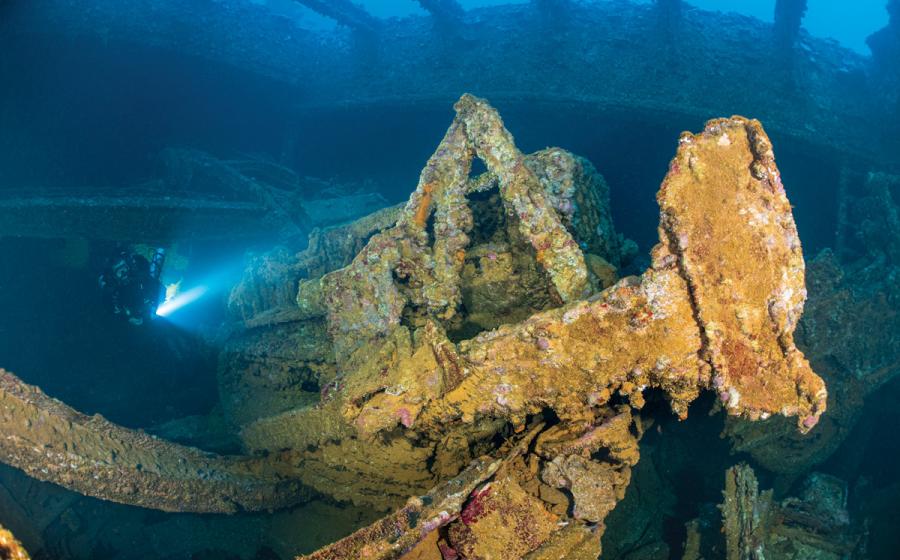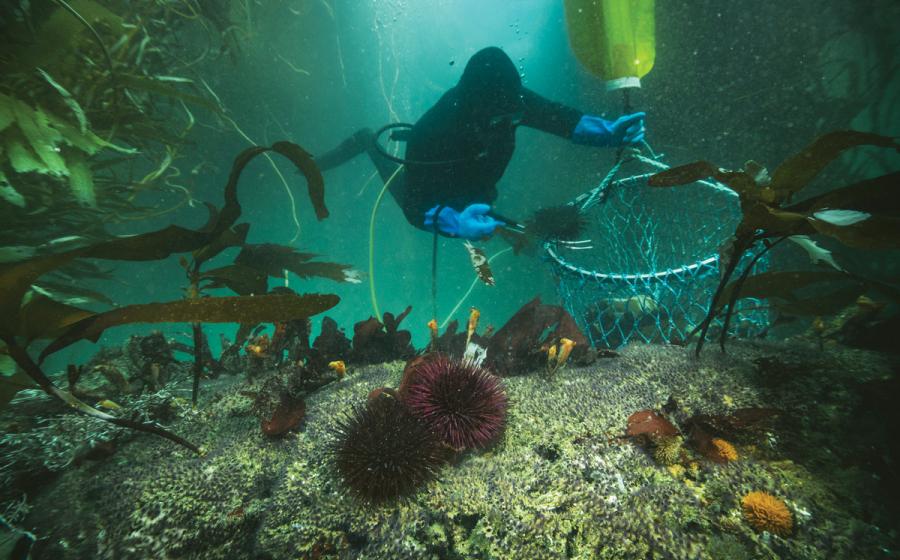Waste not, want not: The science of fish pee.
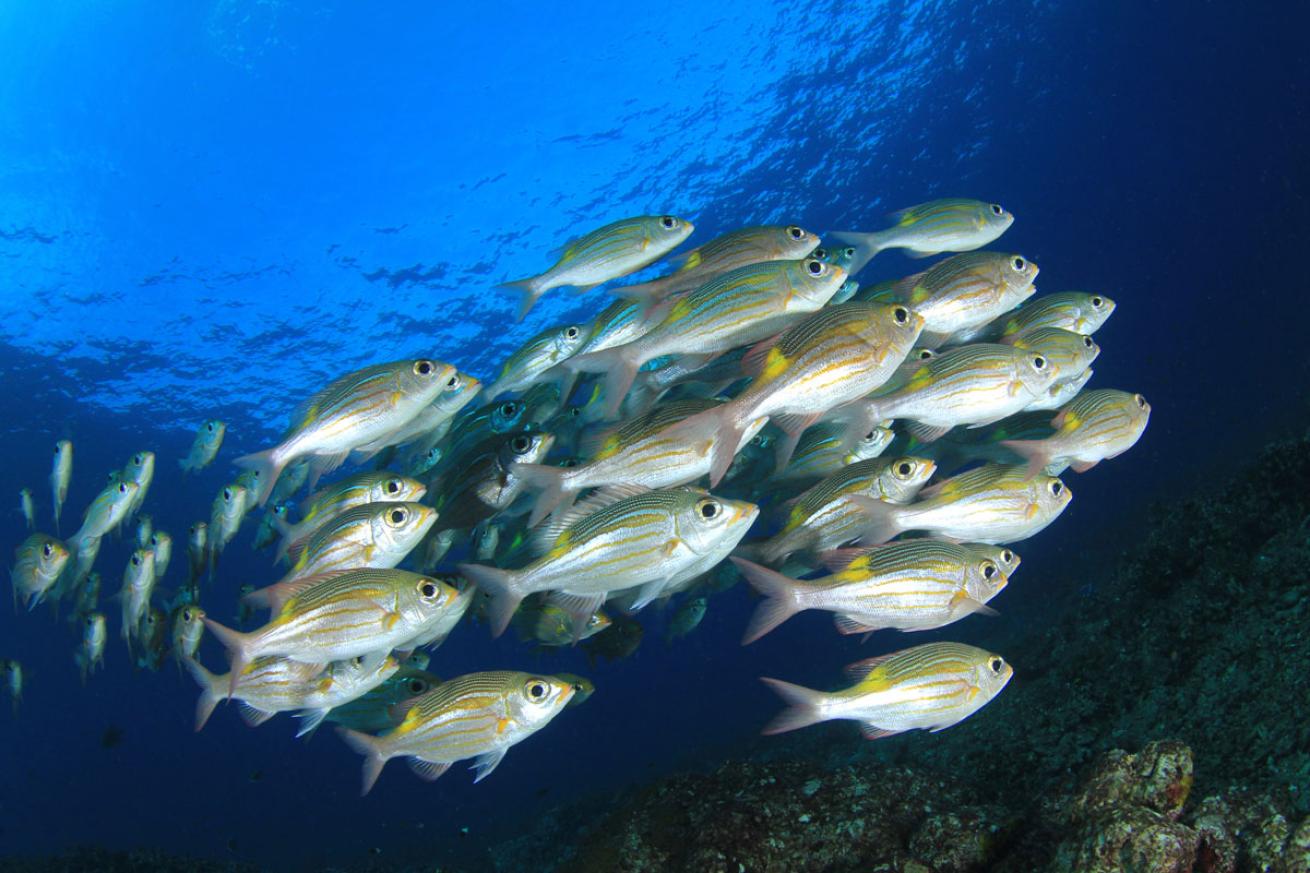
Shutterstock.com/Rich CareySnapper in a school.
When I was a kid, I once tried to drink water right out of the lake where my family vacations. My mother wisely pointed out that fish pee in that water, and I stopped immediately. (To this day, the less I think about where our cabin gets its drinking water from, the better.) It turns out that, unsurprisingly, fish and other marine organisms also pee in the ocean. And far from being gross, or at least in addition to being gross, this has an important impact on nutrient flow in marine ecosystems.
The science behind this phenomenon is pretty straightforward; you don’t have to be a math whiz to understand it. The best-known example of the ecosystem importance of waste, parrotfish pooping sand, is just one way that this can help.
A lot of physiological processes are limited by the availability of certain nutrients in the local environment, and some of those nutrients are found in the waste of marine organisms. If you’ve ever seen wooden posts with seabirds sitting on them in shallow water on your boat ride out to a dive site, those posts are designed to attract birds, which will then poop and fertilize the water, helping to grow back damaged sea grass beds. Similarly, whales eating somewhere, migrating somewhere else, and pooping where they end up can increase local productivity by up to 15 percent. Sharks that feed in the open ocean and excrete waste on coral reefs are a major source of nutrients that help make the biodiversity of reefs possible.
Scientists have long studied the trickle-down effects of marine animal waste on shaping the structure and function of marine ecosystems, and there’s been a steady stream of these papers coming out for the past decade, with titles ranging from the dry and technical (“Fish-derived nutrient hotspots”) to the cutesy-by-science-standards (“Animal pee in the sea”). These papers paint a troubling picture: Not only is animal waste a critical source of nutrients to many marine ecosystems, but humans removing too many fish is resulting in nutrient shortages that affect the whole ecosystem—overfishing removes about half of these nutrients from a given ecosystem.
A new paper finds the problem may be worse than we thought. This is because some past scientists may have been oversimplifying our calculations about the ecosystem impacts of fish pee! We’ve long known that lots of traits and behaviors vary between individuals in a species, but it turns out that this list of behaviors includes peeing. Some fish are actually what Popular Science terms “Super Urinators.” They swim more and eat more and pee more than others. These “MVPees” release a lot more nutrients than other members of their species, and removing them from the ecosystem could have a huge impact.
In short, the circle of life involves more than just animals eating each other—their other behavior can influence their environment as well! I hope that you’ve learned a wee bit about the science of waste-mediated nutrient flow!
About David Shiffman
Dr. David Shiffman is a marine conservation biologist specializing in the ecology and conservation of sharks. An award-winning public science educator, David has spoken to thousands of people around the world about marine biology and conservation, and has bylines with the Washington Post, Scientific American, New Scientist, Gizmodo and more. Follow him on Twitter, Facebook and Instagram, where he’s always happy to answer any questions about sharks. Please direct any questions or hate mail to [email protected].
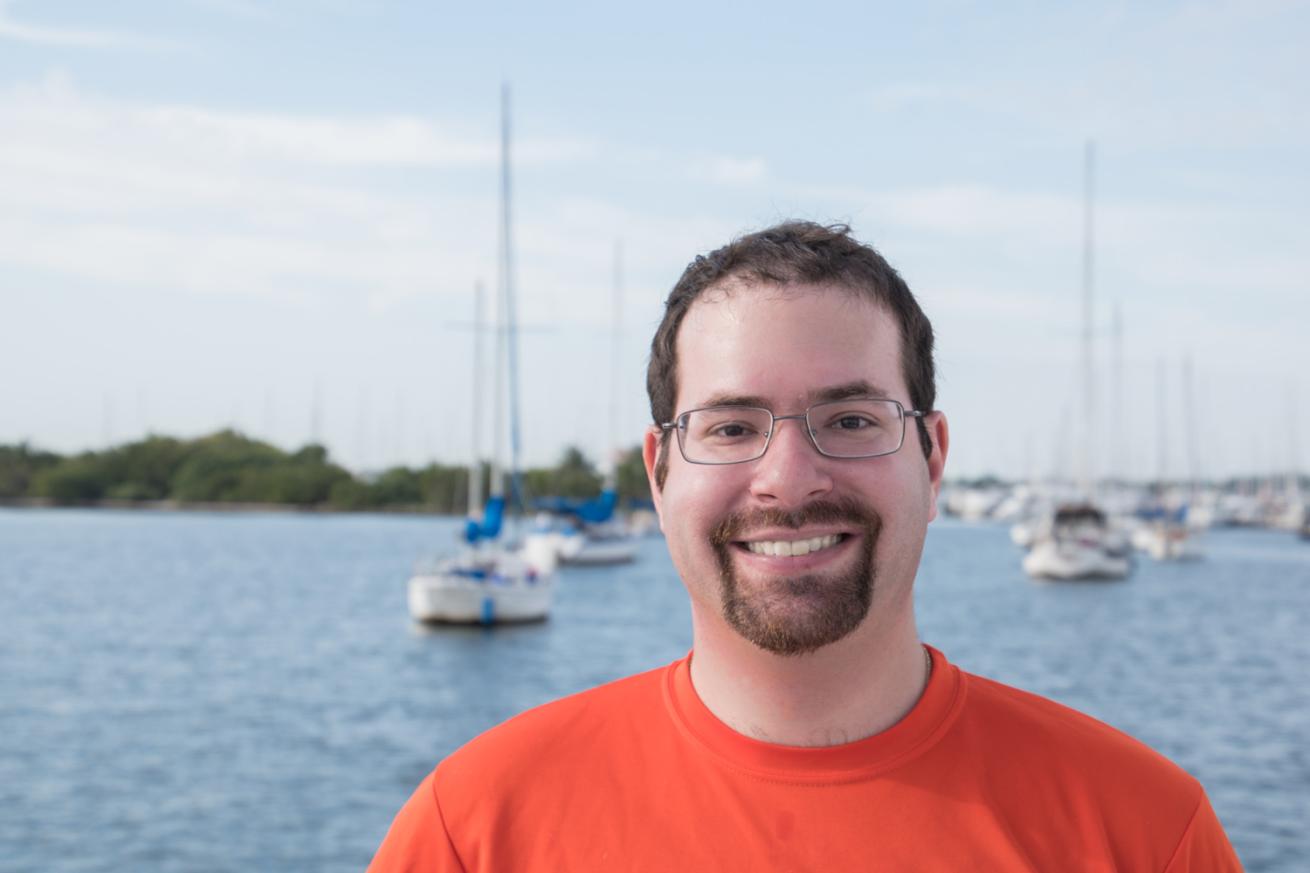
Josh LibermanDr. David Shiffman
About Science Stop with Dr. David Shiffman
Before you surface from a deep scuba dive, you make a safety stop. Before you take a deep dive into the complicated world of ocean conservation, I encourage you to make a science stop by reading this column. The global environmental challenges we face can seem overwhelming, and concerned citizens, especially people like scuba divers who love spending time in the ocean, want to help do their part to fix these problems. However, with lots of conflicting, misleading or just plain wrong information out there about environmental problems and how you can help solve them, it can be hard to know how to help. In some cases, well-intentioned but misinformed activists not only fail to help solve a problem, but can actually make the problem worse, or harder to solve! Put simply, if we’re going to fix the massive problems facing the ocean, the details matter, and those details can be confusing! In this monthly column, my goal is to teach you the true scientific facts behind some of the most pressing threats facing the ocean and the solutions experts believe will help solve them. I will also try to dispel common misconceptions about these threats and their solutions.

.jpg?itok=QuKTldYw)

